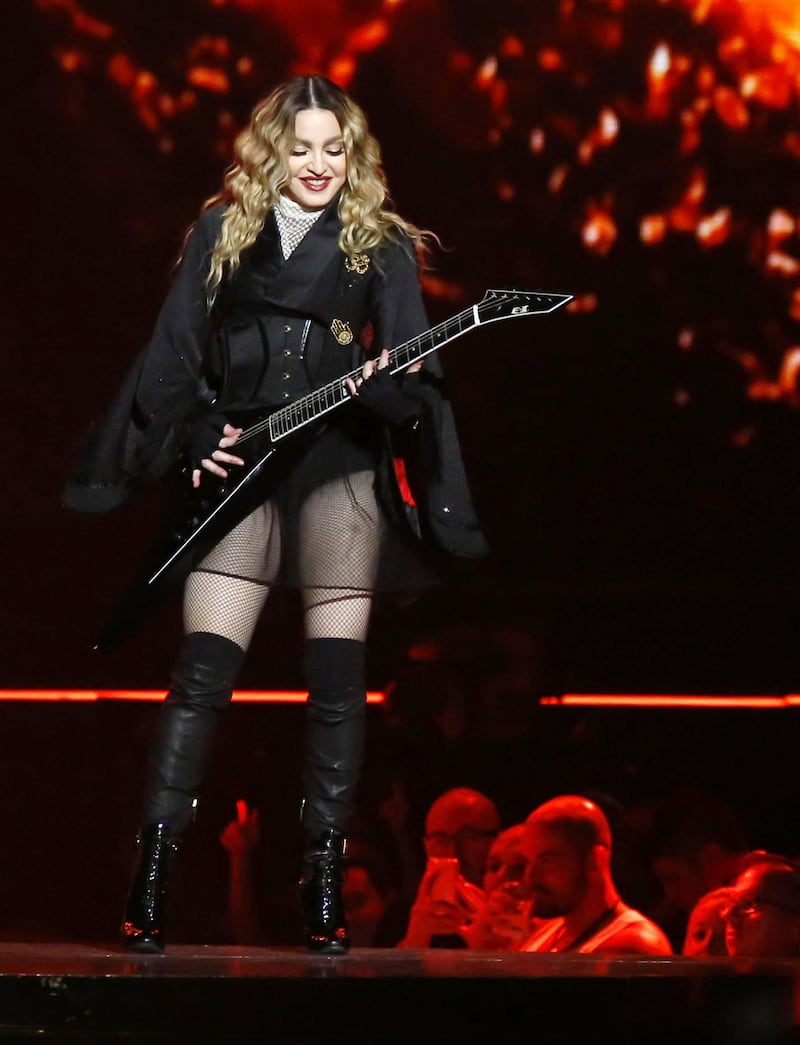On her forthcoming concept album Madame X, Madonna takes on the role of a secret agent with a cause – a femme fatale dedicated to "fighting for freedom, bringing light to dark places". But last week, it appeared that the singer's resolve to stand up for what is right had fallen flat. In a Facebook post, the concert promoter Live Nation Israel announced that she had been booked to perform at the closing night of the Eurovision Song Contest, on May 18, in Tel Aviv. The news sparked outrage among human rights activists and supporters of the Boycott, Divestment and Sanctions movement and the hashtag #MadonnaDontGo proliferated across social media.
Casual observers may wonder why all this is so controversial. After all, Eurovision is a notoriously kitsch event and what does mainstream pop have to do with politics these days, anyway? The truth is that culture cannot be separated from the world in which it exists. Music and art are often used by governments to assert soft power and present a progressive and outward-looking face to the world. In this case, such a public pose stands in stark contrast to the way the Israeli state treats Palestinian citizens and those living in Gaza and the West Bank.
The origins of Eurovision itself are also deeply political. When the contest was first created in 1956, it was meant to bring European countries together and heal the wounds of the Second World War. The organisation’s website still describes it as “a true pan-European tradition”.
However, it has also been open to exploitation. According to the contest's rules, the winning country hosts the next year's final. In 1968, the Spanish singer Massiel took the prize with a song titled La, La, La. At that time, the fascist dictator General Franco was eager to claim a legitimate place for his nation in a wider Europe. When Spain hosted the contest in 1969, the government organised extravagant festivities that even included a Salvador Dali sculpture on stage.
The content of Eurovision's entries can also be explicitly political. In 2016 the Ukrainian singer Jamala won with the ballad 1944, which was widely interpreted as a criticism of Russia's annexation of Crimea. Meanwhile, although the competition judges and the viewing public are not allowed to vote for their home countries, they often back nations closely allied to their own.
Aside from the contest itself, the decision to perform in a nation such as Israel has obvious ethical and ideological dimensions. Doing so communicates support of its government and policies. In the past, a cultural boycott formed part of a broader programme of international sanctions placed upon apartheid South Africa. The fall of that particular racist regime cannot be credited solely to musicians refusing to play there, but such public stances do make a powerful point.
This is especially relevant today. Israel has re-elected Benjamin Netanyahu as its prime minister – a man who promises to form the most hardline nationalist government in the country's history, has cosied up to a variety of far-right leaders and recently vowed to annex large parts of the West Bank, effectively burying the idea of Palestine ever becoming an independent state.
It is sad that such a positive and inclusive event is associating itself with a state such as Israel, especially when the country’s mere participation defies geographical fact. The contest taking place in Tel Aviv tacitly endorses the oppression and violence that Palestinians are forced to endure every day.
Music has a tremendous capacity to build tolerance and understanding. It is also an important vehicle through which to raise awareness of pressing issues. Many Palestinian musicians are using their work to fight the erasure of their culture. The Ramallah-based rapper Muqata’a (which means boycott in Arabic) is one of them, while 47Soul, a group whose members hail from the Palestinian diaspora, including Jordan and Israel, have been wowing audiences across the world. The entrancing sound of Yemen Blues, a band comprising Israeli players of Yemeni descent who perform in Arabic, Hebrew and English, also proves that music really can build bridges and showcase the best of both worlds.
While these independent regional artists use their talents to reinvent culture in Israel and Palestine, there is a case for saying that global stars have a different duty. Last year, Natalie Portman, a dual US-Israeli citizen, cancelled a trip to receive the Genesis Prize – an award often referred to as the “Jewish Nobel” – in Jerusalem. She did so in protest against Mr Netanyahu’s planned attendance. Her decision to pull out led to the cancellation of the whole event.
Accordingly, international celebrities such as the fashion designer Vivienne Westwood and Pink Floyd's Roger Waters have called for a total boycott of Eurovision. The more people join the movement, the better are the chances of pressuring Israel into complying with international law. Others such as Lorde and Lana del Rey, have been pressured to cancel tour dates in Israel. However, taking such steps requires some courage. The US comedian Sarah Silverman found this out when she was met with a vicious social media backlash for expressing her support for Ahed Tamimi, a Palestinian activist who was jailed for slapping an Israeli soldier when she was only 17.
The recent drive for Madonna to cancel her Eurovision appearance may be successful, or it may not, but it is important that she is made aware that her choices matter. If she wanted to, she could leverage her fame to “fight for freedom” in the real world, not just as a fictional alter-ego.





